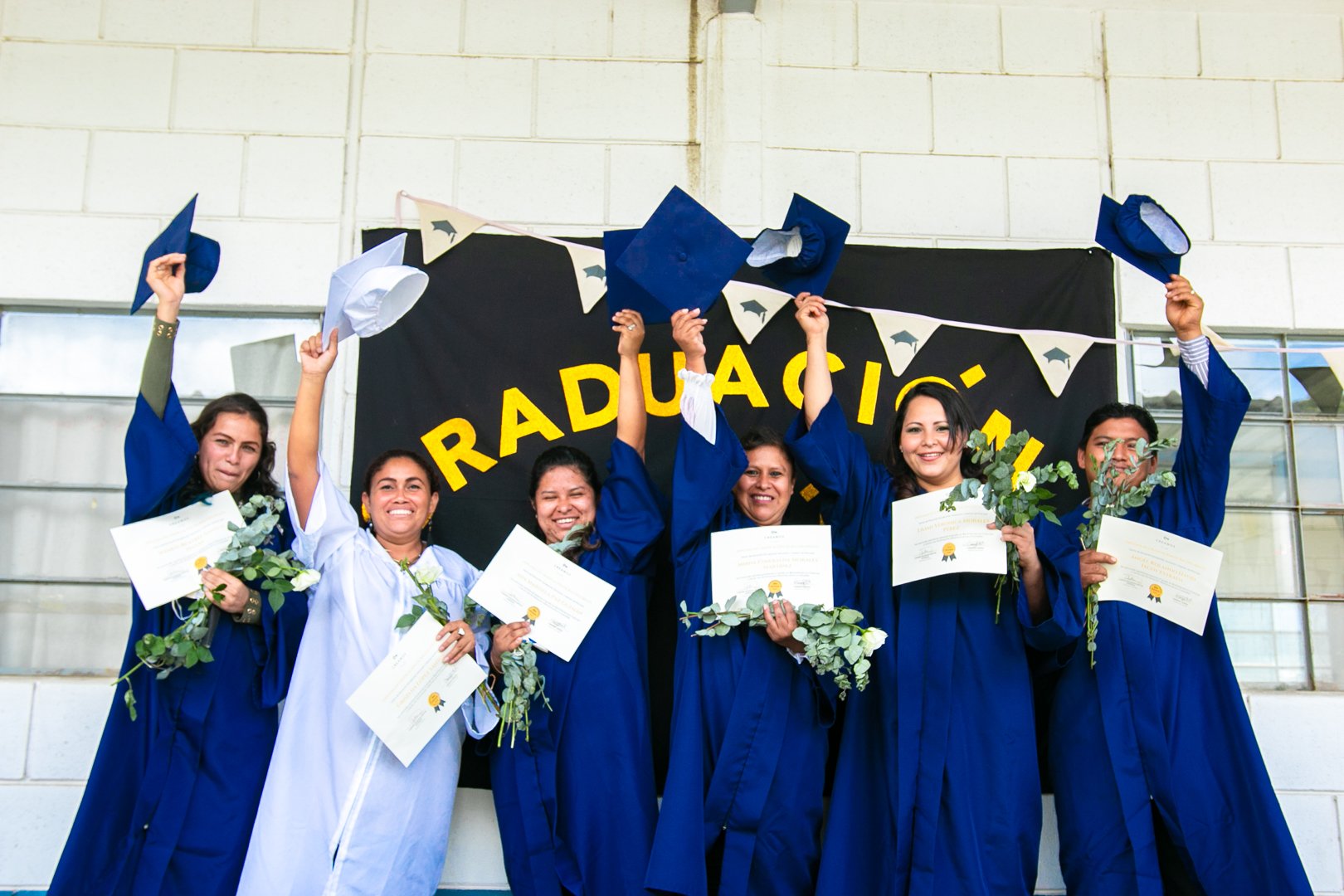Creamos participants dove into 2021 with a fine tuned adaptability, creativity, and tenacity to dismantle chronic barriers to opportunity. Their unyielding determination is the source of our motivation for making their goals a reality.
Read MoreWe are beyond ecstatic to celebrate the discipline and drive of the Creamos class of 2021. In a community with an average 4th grade education, this is an immense stride for the 37 graduates on their journey towards self-determination.
Creamos women from the community surrounding the Guatemala City Garbage Dump confront a variety of systemic barriers, such as gender inequality, intimate partner violence, and economic and workforce exclusion. Gender inequality is so deeply entrenched in the community that women earn an average of 50% less than men. “Despite the fact that [men] earn more,” explains a Creamos participant, Anabela, “they give us very little…When you don't understand it, you don't realize that this is violence that we are enduring...it is a type of violence, it’s just a little more difficult to identify.”
Read MoreCreamos’ mission is to create long-term financial, emotional and educational opportunities for the local women and families in the community surrounding the Guatemala City Garbage Dump. Since 2018, Creamos has gradually grown from a community-based initiative, to a legally registered association. This progress would not be possible without taking the time to reflect on past successes, capitalizing on lessons learned, and staying attuned to the community’s ever-shifting challenges.
Since its inception, one of Creamos’ primary organizational goals has been sustainability through community leadership. Despite unimaginable obstacles, several women from the community have emerged as leaders in our organization, defying societal norms and committing to better futures for themselves, their families and colleagues. Creamos recognizes these women as the future leaders and directors of the organization.
Read MoreSince the onset of the pandemic in March of 2020, we have adapted our Adult Learning Program to an online model. While we value the security measures and mandates that keep us safe, we can't wait to be together in the classroom again! Along the way, our Adult Education team has consistently found creative solutions to keep our students on track with their studies. Each month, our teachers create homework packets for their students, which they (safely) deliver every two weeks. These homework packets are returned to our teachers, who grade them, and call each of their students to discuss their progress. In addition, we've paid for all students to have WiFi on their phones so they’re able to receive weekly pre-recorded video lessons, engage in video tutoring sessions, and send pictures of homework when they’re experiencing difficulties. Our teachers and students alike have expressed their sadness in not being able to learn from each other in a group setting, but they’re finding ways to stay in touch and maintain as much normalcy as possible given extensive logistical and technological challenges.
Read More




